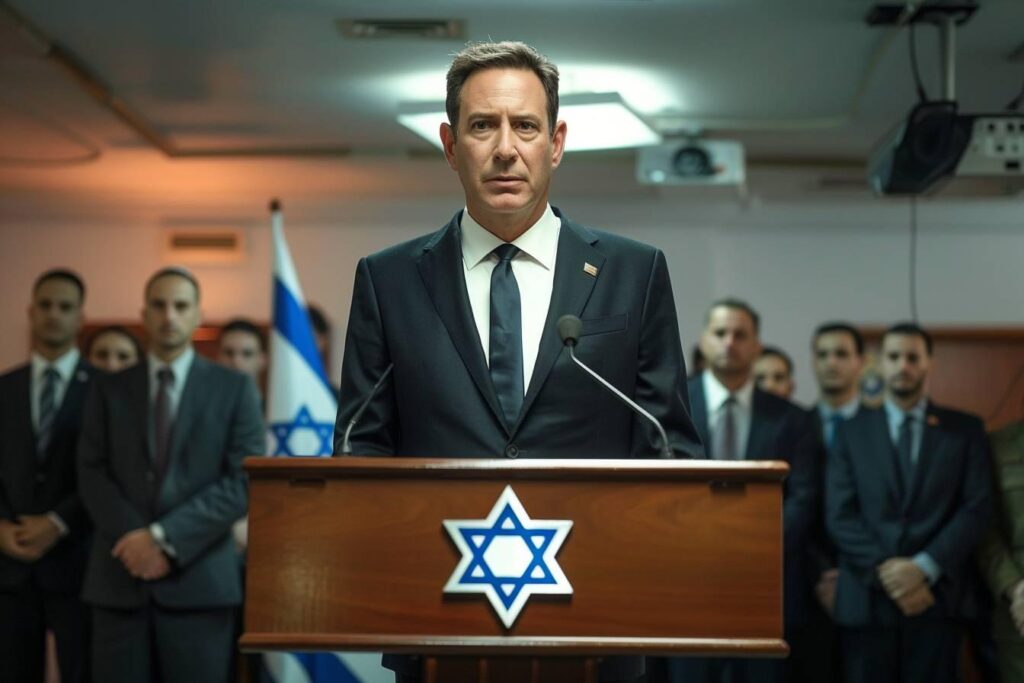Unity and Understanding: Bridging Gaps in the Jewish Community

In an era marked by increasing social division and rising antisemitism, voices like Noa Tishby’s are more important than ever. Tishby, an actress, producer, and author, has recently penned a compelling new book titled “Uncomfortable Conversations with a Jew,” which aims to dismantle prevalent myths and stereotypes about Jews while fostering a deeper understanding among diverse communities.
A Bold Dialogue on Jewish Identity
Tishby’s book is inspired by a similar approach taken by Emmanuel Acho in his work “Uncomfortable Conversations with a Black Man.” In her book, Tishby engages in frank discussions about what it means to be Jewish, tackling tough questions and misconceptions head-on. The format of her discourse not only enlightens but also invites readers to reflect on their own biases and knowledge about Jewish culture and history.
Addressing Modern Antisemitism
The need for such a book has never been more urgent. According to the Anti-Defamation League, there have been over 10,000 documented antisemitic incidents in the United States in the past year alone. These incidents have surged especially after the recent conflict between Israel and Hamas. Tishby, a Tel Aviv native and former Special Envoy for Combatting Antisemitism, uses her personal and professional background to shed light on these dark statistics. She explains antisemitism as a “layer cake” of historical biases accumulated over millennia, now manifesting in new forms including extreme criticism of Israel that often doubles as veiled hate towards Jews globally.
In discussing these issues, Tishby makes a crucial distinction: while criticism of any country’s politics, including Israel’s, is valid within reasoned debate, it crosses into antisemitism when it becomes obsessive or hateful. This nuanced understanding invites readers to critically evaluate their perspectives on Israel and its global Jewish community.
The Intersectionality of Struggle
One of Tishby’s powerful messages is the potential for solidarity between the Black and Jewish communities—two groups that have faced historical oppression and marginalization. She advocates for mutual support against hate and prejudice, suggesting that understanding each other’s histories and struggles is key to building this alliance.
- Show up: Be present at events that support or educate about Jewish culture.
- Speak up: Use your voice to challenge antisemitic or racially charged narratives.
- Educate: Learn about the complex history and contemporary issues facing Jews.
Embracing Jewish Identity Beyond Stereotypes
Tishby doesn’t just call for support from allies; she also encourages members of the Jewish community to embrace their identity boldly. In an age dominated by social media, she stresses the importance of actual social interactions over online engagements. Building strong, real-life connections within and outside the Jewish community can help foster understanding and dispel myths.
The Role of Cultural Festivals in Strengthening Communities
To further these conversations, Tishby will be appearing at the JCC Jewish Book & Arts Festival on November 3. Such events play a crucial role in community bonding and cultural exchange. They serve not just as platforms for authors like Tishby to discuss their work, but also as vibrant venues for people of all backgrounds to come together and learn from each other.
A Blueprint for Future Conversations
The collaboration between Tishby and Acho offers more than just insights—it provides a blueprint for how communities can engage in meaningful dialogue. Emmanuel Acho himself has praised Tishby’s effort as not just educational but actionable. He urges not only reading her book but taking concrete steps towards understanding and supporting one another across cultural lines.
Conclusion: A Call to Action
In today’s world, where division often takes precedence over unity, initiatives like Tishby’s book remind us of the power of conversation and education. As antisemitism evolves and adapts to new environments, so too must our strategies to combat it. By fostering an environment of mutual respect and understanding, we pave the way for not only addressing antisemitism but also creating a more inclusive society where every identity is respected.
It is through uncomfortable conversations that we find paths to comfort and hope.



